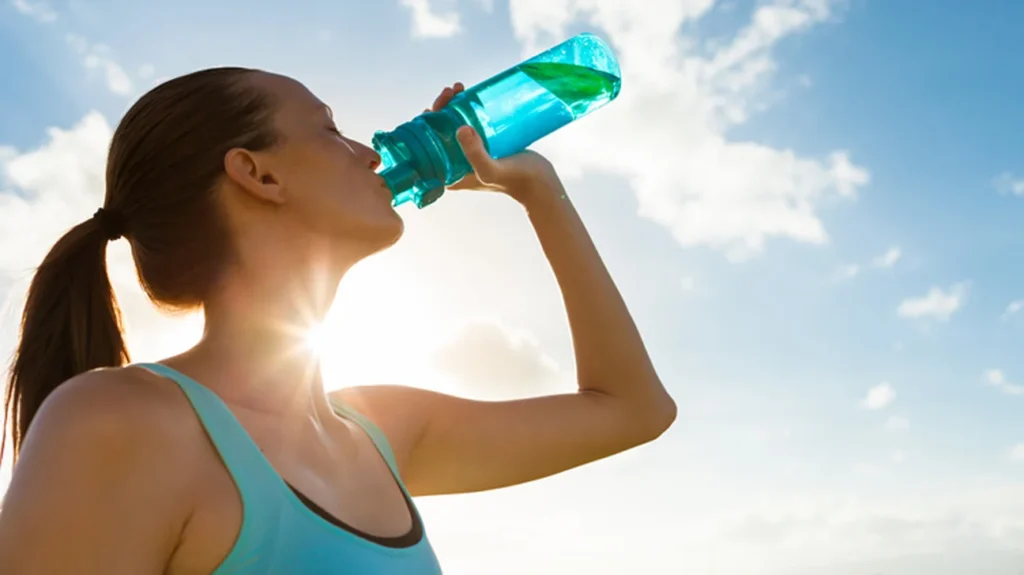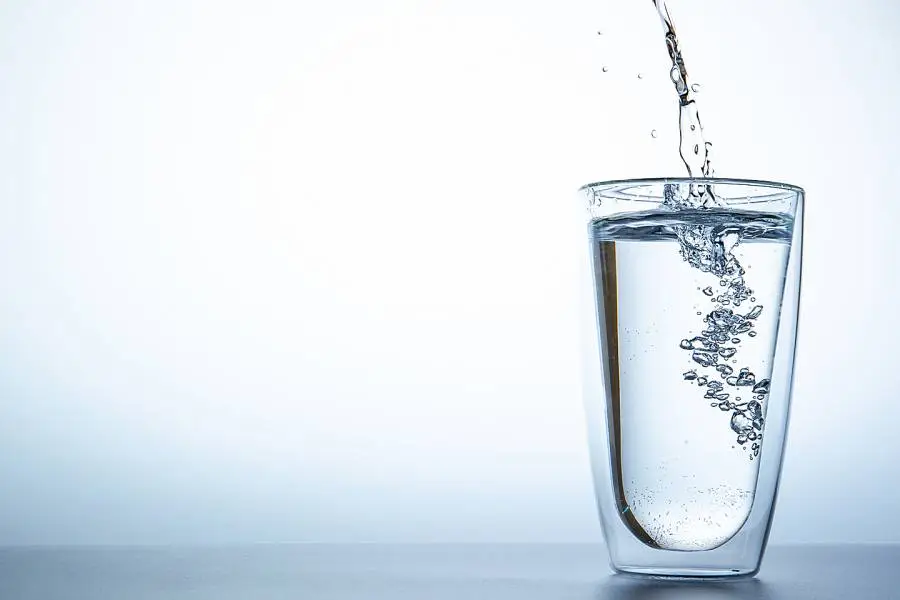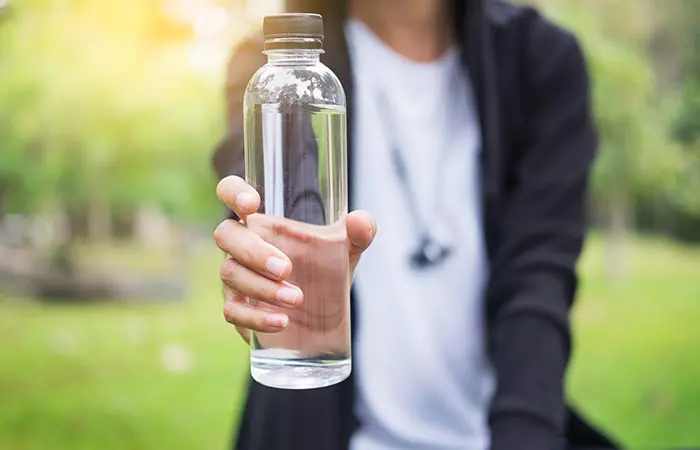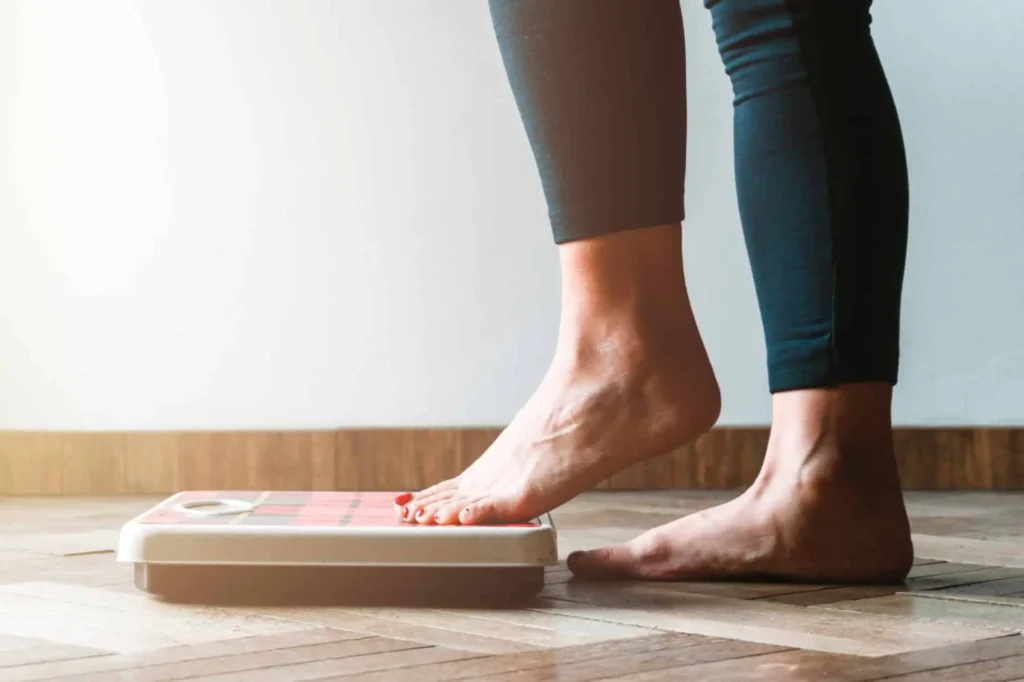Drinking water can help burn calories and reduce hunger cravings. Replacing sugary drinks with water can also lower caloric and sugar intake. But there isn’t enough evidence that water itself can help you lose weight OR Can drinking water reduce weight? For a long time, drinking water has been thought to help with weight loss.

In fact, 26.3% of participants in a 2019 study conducted between 2015 and 2016Trusted Source acknowledged “drinking a lot of water” in an effort to reduce their body weight.
A direct cause-and-effect relationship between drinking more water and losing weight is not supported by the available research, but it is implied by some studies.
Continue reading to find out more about whether consuming water can aid in weight loss.
Does drinking water make you burn calories?
Increased sympathetic activity is linked to water consumption. The sympathetic nervous system in your body speeds up your metabolism and heart rate.

Water consumption may therefore help raise your metabolic rate and the amount of energy (or calories) you burn. Researchers discovered in a 2023 study that those who drank 200–250 milliliters (mL), or 6.8–8.5 ounces (oz), of warm water after every meal experienced more weight loss and a lower BMI than those in the control group who did not.
In a previous study, the subjects were offered water, saline solution, or sugar to consume. The effect of these drinks on their resting energy expenditure, or the number of calories they burned while at rest, was then measured.
Water at room temperature had little effect, while water that had been chilled indicated a daily increase of about 23 calories burned. That being said, the rise in energy expenditure was significantly greater in the sucrose drink. Is it possible to lose weight by drinking water?
This casts doubt on the efficacy of using water alone to treat obesity. Particular attention should be paid to how different temperatures of fluids affect energy use in future studies.
Does drinking water before meals reduce appetite and calorie intake?
By choosing water over other potentially sugar- and calorie-laden beverages, you are automatically consuming fewer calories. Moreover, there are many who assert that consuming water prior to a meal decreases hunger. But is this accurate?

One 2018 study According to Trusted Source, individuals with typical weights and body mass indices (BMIs) may find that drinking water before meals helps reduce feelings of hunger and subsequent eating. The extent to which this holds true for individuals who are obese or overweight is unknown.
Does drinking more water lower the chance of weight gain?
Additionally, water consumption may assist avoid long-term weight gain. An average person acquires 1.45 kg (3.2 lb) every 4 years, according to a 2013 study (Trusted Source).

According to the study, subjects who consumed 1 extra cup of water daily lowered their weight gain by 0.13 kg (0.23 lb) or Can drinking water reduce weight. According to the study, subjects who consumed 1 extra cup of water daily lowered their weight gain by 0.13 kg (0.23 lb). or Those who substituted a serving of a sugar-sweetened beverage with 1 cup of water reduced their 4-year weight gain by 0.5 kg (1.1 lb).
Drinks like Pepsi cans, which have 25 calories and nearly 7 grams of sugar, are examples of sugar-sweetened beverages dependable source
Researchers discovered that consuming more water was associated with greater weight loss in a more recent review published in 2019 (Trusted Source).
The average weight loss was 5%, with the weight loss ranging from 0.4 to 8.8 kg. But when water was chosen over high-calorie beverages, the researchers found that the greatest weight loss occurred. This further implies that drinking water did not result in weight loss on its own.
How much water should I drink a day to lose weight?
Numerous health organizations advise consuming eight 8-ounce glasses of water, or roughly 2 liters, each day. Still, a 2017 studyIn fact, Trusted Source discovered no conclusive link between teens who were overweight or obese and daily consumption of this particular amount of water and weight loss.

Furthermore, the individual genuinely determines how much water they require (Trusted Source). People who exercise frequently or perspire a lot, for instance, can require more water than those who do not. Elderly individuals and parents of young children should also pay closer attention to how much water they consume.
Remember that a variety of foods and drinks, including milk, coffee, tea, meat, fish, and especially fruits and vegetables, also include water.
Generally speaking, you should always drink enough water to satisfy your thirst when you’re thirsty.

You might be mildly dehydrated if you notice dry skin, black urine, or particularly high levels of fatigue. Increasing your water intake might help trump this.
Here’s how much fluids you should typically drink in a day in different measurements:
- Liters: 2.2 L for females and 3 L for males
- Ounces: 74 oz for females and 101 oz for males
- Glasses (8 oz): 9 cups for females and 13 cups for males
However, this is just a general guideline.While some people might require much less, others would require much more. To obtain precise details regarding your water consumption, consult a medical expert..
Read also : Anger Management Therapy: What is Anger Management? Techniques To Control Anger











